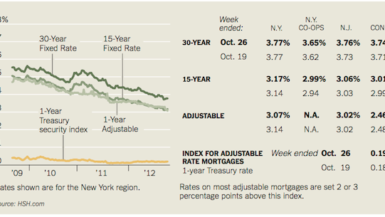- Introduction to Air Conditioning Compressor
- What is an air conditioning compressor?
- Importance of the compressor in the air conditioning system.
- Types of Air Conditioning Compressors
- Reciprocating compressors
- Rotary compressors
- Scroll compressors
- Screw compressors
- How Does an Air Conditioning Compressor Work?
- Compression cycle explanation
- Role of refrigerant in the process
- Common Issues with Air Conditioning Compressors
- Compressor overheating
- Refrigerant leaks
- Compressor noise
- Signs of a Failing Compressor
- Weak airflow
- Warm air blowing from vents
- Unusual noises
- Preventive Maintenance Tips for Air Conditioning Compressor
- Regular inspections
- Cleaning and lubrication
- Monitoring refrigerant levels
- Troubleshooting Air Conditioning Compressor Problems
- Steps to identify compressor issues
- DIY fixes and when to call a professional
- Energy Efficiency and Air Conditioning Compressors
- Impact of compressor type on energy consumption
- SEER ratings and efficiency considerations
- Choosing the Right Air Conditioning Compressor
- Matching the compressor with the AC system
- Considering environmental factors
- DIY Compressor Installation: Is It Advisable?
- Safety concerns
- Warranty implications
- The Future of Air Conditioning Compressors
- Advancements in compressor technology
- Environment-friendly options
- Conclusion
Air Conditioning Compressor: Keeping Your Cool Efficiently
Air conditioning has become an essential part of our lives, especially in regions with hot and humid climates. Behind the cool and refreshing air that circulates through our homes and workplaces lies an important component – the air conditioning compressor. In this article, we’ll delve into the workings of this vital component, explore different types of compressors, troubleshoot common issues, and learn how to choose the right compressor for your cooling needs.
Types of Air Conditioning Compressors
Air conditioning compressors come in various types, each with its unique characteristics and advantages. The most common types include:
- Reciprocating Compressors: These compressors work through a back-and-forth piston motion, compressing the refrigerant to circulate it through the system.
- Rotary Compressors: Utilizing rotary motion, these compressors provide continuous compression, making them more efficient and quieter than reciprocating ones.
- Scroll Compressors: Scroll compressors use two spiral-shaped scrolls to compress the refrigerant, ensuring smooth and steady operation.
- Screw Compressors: Employing rotating screws, these compressors are commonly used in large-scale cooling systems.
How Does an Air Conditioning Compressor Work?
The air conditioning compressor plays a central role in the cooling process. It functions by compressing low-pressure refrigerant gas into high-pressure gas, which allows it to release heat. The compressed refrigerant then flows through the system, absorbing heat from indoor air and cooling it down. This cycle repeats, maintaining a comfortable indoor temperature.
Common Issues with Air Conditioning Compressors
Despite their importance, air conditioning compressors can encounter problems over time. Some common issues include:
- Compressor Overheating: This may be caused by various factors like low refrigerant levels or clogged condenser coils.
- Refrigerant Leaks: Leaks can lead to reduced cooling efficiency and potential environmental hazards.
- Compressor Noise: Unusual noises may indicate a failing compressor or loose components.
Signs of a Failing Compressor
As a homeowner, it’s crucial to recognize signs of a failing compressor:
- Weak Airflow: Insufficient cooling even with the AC running.
- Warm Air Blowing from Vents: The air coming from vents isn’t cool.
- Unusual Noises: Loud, strange noises during AC operation.
Preventive Maintenance Tips for Air Conditioning Compressor
Regular maintenance can extend the lifespan of your compressor and improve overall system performance. Here are some maintenance tips:
- Regular Inspections: Schedule annual inspections by HVAC professionals.
- Cleaning and Lubrication: Keep the compressor and surrounding components clean and well-lubricated.
- Monitoring Refrigerant Levels: Ensure the refrigerant is at the correct level to prevent potential issues.
Troubleshooting Air Conditioning Compressor Problems
When facing AC problems, it’s essential to follow a systematic approach:
- Steps to Identify Compressor Issues: Start by checking for common issues like tripped circuit breakers or dirty air filters.
- DIY Fixes and When to Call a Professional: While some minor issues can be addressed by homeowners, it’s crucial to know when to seek professional help.
Energy Efficiency and Air Conditioning Compressors
Choosing an energy-efficient compressor can lead to significant cost savings and reduced environmental impact:
- Impact of Compressor Type on Energy Consumption: Different compressors have varying energy efficiency levels.
- SEER Ratings and Efficiency Considerations: Understanding SEER ratings when selecting a compressor.
Choosing the Right Air Conditioning Compressor
Selecting the right compressor is essential for optimal cooling performance:
- Matching the Compressor with the AC System: Ensure the compressor’s capacity aligns with the cooling requirements.
- Considering Environmental Factors: For eco-conscious consumers, environmental considerations play a role in the decision-making process.
DIY Compressor Installation: Is It Advisable?
While DIY projects can be appealing, installing a compressor requires careful consideration:
- Safety Concerns: Compressor installation involves handling refrigerant, which can be hazardous without proper knowledge.
- Warranty Implications: DIY installation may void the compressor warranty.
The Future of Air Conditioning Compressors
Innovation continues to shape the HVAC industry, and the future of air conditioning compressors looks promising:
- Advancements in Compressor Technology: Emerging technologies promise increased efficiency and performance.
- Environment-Friendly Options: Manufacturers are investing in eco-friendly compressor alternatives.
Conclusion
The air conditioning compressor is the heart of your cooling system, making it crucial to understand its functionality and maintenance requirements. Regular maintenance and timely professional assistance can ensure its smooth operation and prolong its lifespan, providing you with comfortable indoor environments during scorching summers.





Leave a reply